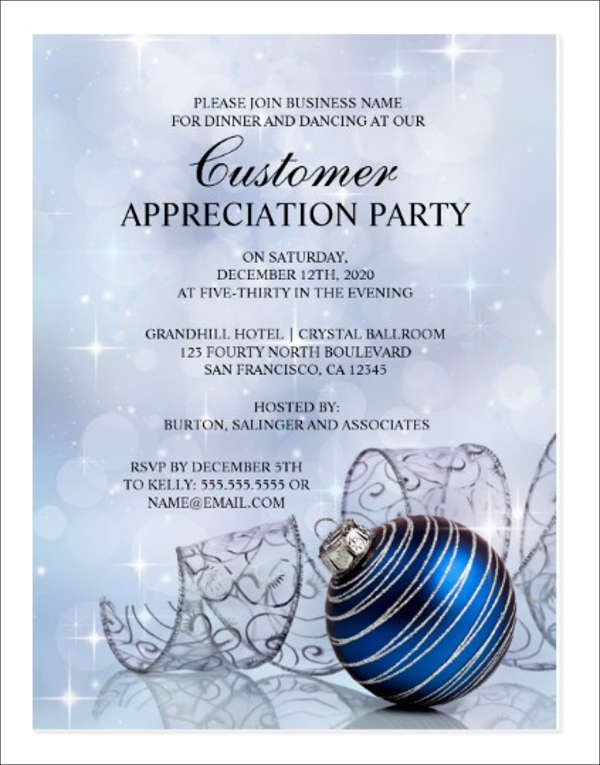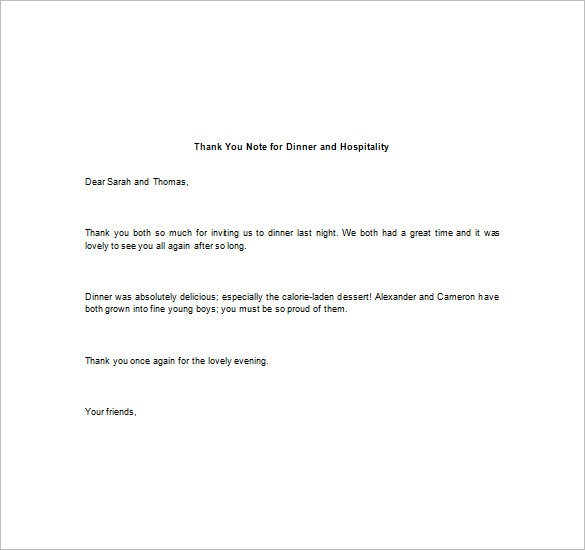Receiving a dinner invitation is a thoughtful gesture that deserves acknowledgment and appreciation. Expressing gratitude in the right way not only strengthens relationships but also reflects your respect and admiration for the host. Whether it's a formal or casual dinner, knowing how to convey your thanks properly is essential for maintaining good social etiquette.
In today's fast-paced world, where digital communication often overshadows personal interactions, taking the time to express gratitude can make a significant impact. This article will guide you through the art of saying "thank you for dinner invitation" effectively, covering everything from traditional methods to modern approaches.
By the end of this article, you will understand the importance of gratitude in social settings, learn how to craft meaningful thank-you messages, and discover tips to enhance your dining etiquette. Let's dive into the details and explore how expressing gratitude can enrich your relationships.
Read also:Anandabazar Newspaper A Comprehensive Look At Bengals Leading Daily
Understanding the Importance of Thank You for Dinner Invitation
Saying "thank you for dinner invitation" goes beyond mere politeness. It demonstrates your appreciation for the effort, time, and resources the host has invested in hosting the dinner. According to a study published in the Journal of Positive Psychology, expressing gratitude can significantly boost interpersonal relationships and foster a sense of community.
Gratitude also plays a crucial role in building trust and strengthening bonds. When you acknowledge someone's kindness, you create a positive feedback loop that encourages further generosity and goodwill. This is particularly important in social settings, where reciprocity and mutual respect are key to maintaining healthy relationships.
How to Write a Meaningful Thank You Note for Dinner Invitation
Choose the Right Format
Before crafting your thank-you message, consider the appropriate format. While handwritten notes remain a classic choice, digital thank-you messages have gained popularity due to their convenience. However, the medium you choose should align with the formality of the dinner and your relationship with the host.
- Handwritten Notes: Ideal for formal dinners or when you want to add a personal touch.
- Emails: Suitable for casual gatherings or when time is of the essence.
- Text Messages: A quick and easy option for informal settings.
Include Personal Details
Regardless of the format, ensure your thank-you message is personalized. Mention specific aspects of the dinner that you enjoyed, such as the food, ambiance, or company. This shows that you paid attention and genuinely appreciated the experience.
Essential Elements of a Thank You Message
Start with a Greeting
Begin your message with a warm and friendly greeting. Address the host by name to make the message more personal. For example, "Dear [Host's Name]," or "Hi [Host's Name],". This sets a positive tone for the rest of your message.
Express Gratitude
Clearly state your appreciation for the dinner invitation. Use phrases like "Thank you for inviting me to dinner" or "I truly appreciated your kindness in hosting such a wonderful evening." Be sincere and avoid generic statements that lack depth.
Read also:Unveiling The Extraordinary Journey Of Frederick Dump
Mention Specific Details
Highlight specific elements of the dinner that stood out to you. For instance, "The [dish name] was absolutely delicious," or "The conversation we had was so enjoyable." This demonstrates that you were fully present and engaged during the event.
Timing Matters: When to Send Your Thank You
The timing of your thank-you message is just as important as its content. Ideally, you should send your message within 24-48 hours after the dinner. This ensures that your gratitude is timely and relevant. Delaying your message may come across as insincere or forgetful.
Modern Etiquette: Digital Thank You Messages
Text Messages
Text messages are a convenient way to express gratitude, especially for casual dinners. Keep your message short and sweet, but still meaningful. For example, "Hey [Host's Name], just wanted to say thank you so much for last night! It was such a lovely evening."
Emails
Emails offer a more formal approach while still being digital. They are perfect for semi-formal dinners or when you want to include additional details. Begin with a polite greeting, express your gratitude, and end with a warm closing. For example:
Dear [Host's Name],
Thank you so much for inviting me to dinner last night. I thoroughly enjoyed the company and the delicious meal. It was such a pleasant evening, and I appreciate your kindness in hosting it.
Best regards,
[Your Name]
Formal Thank You Notes: The Art of Handwriting
Select the Right Stationery
For formal dinners, handwritten thank-you notes are the gold standard. Choose high-quality stationery that reflects the occasion's elegance. A simple card with a tasteful design is often the best choice.
Write Clearly and Concisely
When writing your note, ensure your handwriting is legible and your message is concise. Avoid lengthy paragraphs; instead, focus on expressing your gratitude in a few well-chosen sentences. For example:
Dear [Host's Name],
Thank you for your kind invitation to dinner. The evening was delightful, and I truly enjoyed the wonderful company and delicious meal. Your hospitality made the experience unforgettable.
Sincerely,
[Your Name]
Cultural Considerations in Thank You Messages
Understand Cultural Norms
Different cultures have varying expectations regarding thank-you messages. For example, in some Asian cultures, it is customary to bring a small gift as a token of appreciation. In contrast, Western cultures often emphasize verbal or written expressions of gratitude. Understanding these nuances can help you tailor your message appropriately.
Adapt Your Message Accordingly
When attending dinners hosted by people from different cultural backgrounds, adapt your thank-you message to align with their customs. For instance, if your host values modesty, avoid overly extravagant expressions of gratitude. Instead, focus on sincerity and respect.
Tips for Enhancing Your Dining Etiquette
Be Punctual
Arriving on time is a fundamental aspect of good dining etiquette. It shows respect for the host's schedule and ensures the dinner proceeds smoothly. If you anticipate being late, inform the host as soon as possible.
Compliment the Host
During the dinner, take opportunities to compliment the host on the food, decorations, or ambiance. This not only makes the host feel appreciated but also sets the stage for a positive thank-you message afterward.
Engage in Meaningful Conversations
Contribute to the conversation by asking thoughtful questions and sharing interesting stories. This creates a pleasant atmosphere and demonstrates your engagement with the event.
Conclusion: The Power of Gratitude
Expressing "thank you for dinner invitation" is more than just a social obligation; it is an opportunity to strengthen relationships and show appreciation for the kindness of others. By following the tips outlined in this article, you can craft meaningful thank-you messages that resonate with your hosts and enhance your dining etiquette.
We encourage you to put these ideas into practice and share your experiences in the comments below. Additionally, feel free to explore other articles on our site for more insights into social etiquette and relationship-building. Together, let's foster a culture of gratitude and mutual respect.
Table of Contents
- Understanding the Importance of Thank You for Dinner Invitation
- How to Write a Meaningful Thank You Note for Dinner Invitation
- Essential Elements of a Thank You Message
- Timing Matters: When to Send Your Thank You
- Modern Etiquette: Digital Thank You Messages
- Formal Thank You Notes: The Art of Handwriting
- Cultural Considerations in Thank You Messages
- Tips for Enhancing Your Dining Etiquette
- Conclusion: The Power of Gratitude



